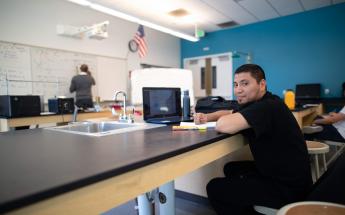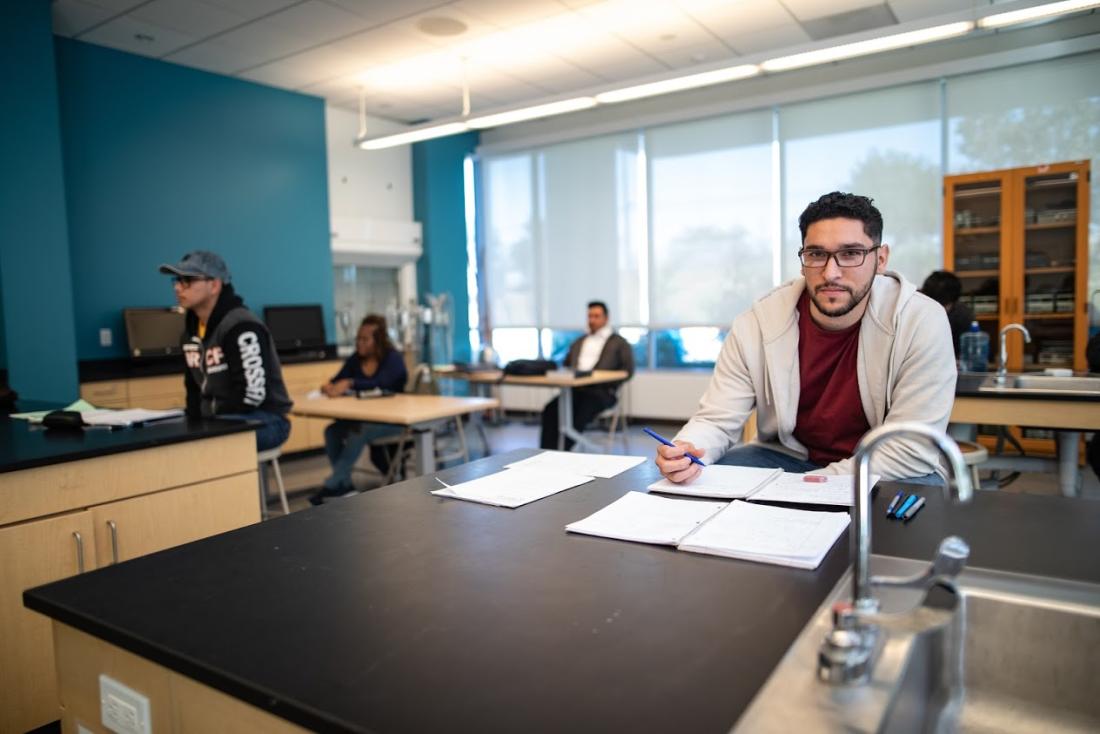Biology (AS)
Careers in Biology
Biologists are found wherever there is or was life. Biologists gather samples in the field and process what they find in laboratories to create reports and complete research. These careers call for logic, reasoning, and critical-thinking skills, and you can start many of these careers right after you graduate from LASC!
Here are some careers and their salaries you could have with a Biology degree:
Career information below taken from bls.gov November 2019. Go to bls.gov for most current career information.
Collect samples and perform tests to analyze body fluids, tissue, and other substances.
National data
| Typical Education Level: | Salary: | Hourly Median Wage: |
| Bachelor’s Degree | $52,330/year | $25.16/hour |
| Work Experience in a Related Occupation: | Job Outlook 2018-2028: | Number of Jobs 2018: |
| None needed | 11% increase (much faster than average) | 331,700 |
Assess individual or family risk for a variety of inherited conditions, such as genetic disorders and birth defects.
National data
| Typical Education Level: | Salary: | Hourly Median Wage: |
| Master’s Degree | $80,370/year | $38.64/hour |
| Work Experience in a Related Occupation: | Job Outlook 2018-2028: | Number of Jobs 2018: |
| None needed | 27% increase (much faster than average) | 3,000 |
Study animals and other wildlife and how they interact with their ecosystems.
National data
| Typical Education Level: | Salary: | Hourly Median Wage: |
| Bachelor’s Degree | $63,420/year | $30.49/hour |
| Work Experience in a Related Occupation: | Job Outlook 2018-2028: | Number of Jobs 2018 |
| None needed | 5% increase (as fast as average) | 19,300 |
Assist agricultural and food scientists.
National data
| Typical Education Level: | Salary: | Hourly Median Wage: |
| Associate Degree | $40,860/year | $19.65/hour |
| Work Experience in a Related Occupation: | Job Outlook 2018-2028: | Number of Jobs 2018: |
| Moderate-term on-the-job training | 6% increase (as fast as average) | 29,200 |
Perform medical tests that help diagnose animals’ injuries and illnesses.
National data
| Typical Education Level: | Salary: | Hourly Median Wage: |
| Associate Degree | $34,420/year | $16.55/hour |
| Work Experience in a Related Occupation: | Job Outlook 2018-2028: | Number of Jobs 2018: |
| None needed | 19% increase (much faster than average) | 109,400 |
Study microorganisms such as bacteria, viruses, algae, fungi, and some types of parasites.
National data
| Typical Education Level: | Salary: | Hourly Median Wage: |
| Bachelor’s Degree | $71,650/year | $34.45/hour |
| Work Experience in a Related Occupation: | Job Outlook 2018-2028: | Number of Jobs 2018: |
| None needed | 5% increase (as fast as average) | 21,700 |
What You’ll Learn at LASC in Biology
You can get Associate in Science in Biology (AS) at LASC where you will learn and work with the fundamentals of the scientific method:
- Learn how to use the scientific method in order to solve problems in biology so you can perform your own experiments successfully and without bias.
- In addition to Biology, receive a core foundation in the sciences with courses in Chemistry, Physics, Organic Chemistry, Microbiology, and Human Biology so you have a deeper understanding of how they are all interrelate and are able to use concepts from one science to help your research within Biology and allow you more career options once you graduate.
- LASC provides internships so you can build your career connections and create community ties for after you graduate.
- Want to transfer? With your Associate in Science in Biology (AS) degree, you will save money on your first two years of college learning from passionate, committed faculty before you transfer to a four-year college or university. Visit your academic counselor to fund out more.
Degrees & Courses You Will Take
Review LASC’s Associate in Science in Biology degree and our suggested course of study for this program. Go to LASC’s current Course Catalog for specific course information:
Major Code: 401.00
Total Units Required: 60
You can transfer into a four-year college or university taking Biology at LASC. Your first step is to talk with your academic counselor to find out exactly what you will need to do to transfer.
After you successfully complete this program, you will be able to:
- Apply the scientific method to solve a problem.
- Solve problems utilizing the major concepts in cell biology and the experimental approaches taken to address them.
| Required Courses: | Units |
|---|---|
| BIOLOGY 6 General Biology I | 5 |
| BIOLOGY 7 General Biology II | 5 |
| CHEM 101 General Chemistry I | 5 |
| CHEM 102 General Chemistry II | 5 |
| PHYSICS 6 General Physics I | 4 |
| PHYSICS 7 General Physics II | 4 |
| TOTAL UNITS |
28 |
| Recommended Electives Units | Units |
|---|---|
| BIOLOGY 5 Introduction to Human Biology | 4 |
| CHEM 211 Organic Chemistry for Science Majors I | 5 |
| CHEM 212 Organic Chemistry for Science Majors II | 5 |
| MATH 227 Statistics | 4 |
| MICRO 1 Introductory Microbiology | 4 |
Get Ready Before You Start
You can start preparing for your career in Biology before your first class starts at LASC
Program Learning Outcomes

After you successfully complete this program, you will be able to:
- Apply the scientific method to solve a problem.
- Solve problems utilizing the major concepts in cell biology and the experimental approaches taken to address them.
